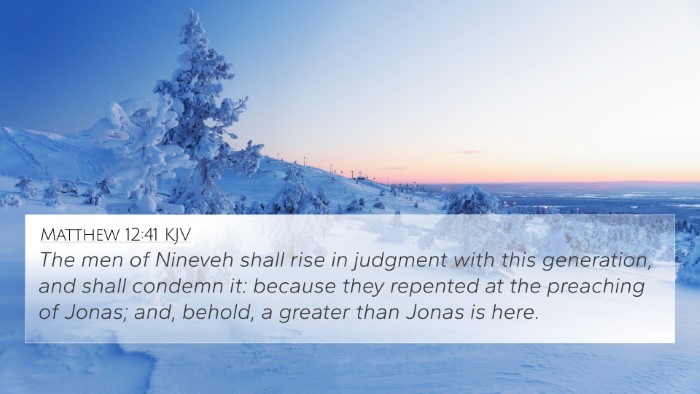Understanding 2 Kings 19:36
2 Kings 19:36 states: "So Sennacherib king of Assyria departed, and went and returned, and dwelt at Nineveh." This verse marks a significant moment in the context of the narrative of the Assyrian invasion of Judah and the divine intervention experienced by King Hezekiah and his people.
Contextual Background
This verse occurs after the Lord delivers Jerusalem from the Assyrian siege, where Sennacherib, the Assyrian king, was threatening its destruction. In the larger narrative (2 Kings 18-19), we see King Hezekiah's earnest prayers and the consequences of a faithful reliance on God during dire circumstances.
Commentary Insights
The commentaries by Matthew Henry, Albert Barnes, and Adam Clarke offer profound understanding of this verse:
- Matthew Henry: He reflects on how Sennacherib's departure reveals God’s power to intervene and deliver His people, emphasizing that the prosperity of the wicked, even powerful kings, is temporary. This emphasizes God's ultimate sovereignty over nations.
- Albert Barnes: Barnes points out that Sennacherib's retreat to Nineveh signifies both a tactical withdrawal and a moment of divine judgment against him. The king's eventual fate serves as a warning about pride and rebellion against God.
- Adam Clarke: Clarke notes the significance of Nineveh being Sennacherib’s base, suggesting that it symbolizes a false sense of security for those who oppose God. He emphasizes that the ultimate downfall of Sennacherib is part of the prophetic fulfillment of God's word.
Thematic Connections
This verse invites readers to explore various Bible verse connections, illustrating the themes of deliverance, divine sovereignty, and the fate of the wicked. Here are a few cross-referenced verses that relate to the themes presented in 2 Kings 19:36:
- Isaiah 37:7: "Behold, I will put a spirit in him, and he shall hear a rumor and return to his own land."
- Psalm 76:10: "Surely the wrath of man shall praise you: the remainder of wrath you shall restrain."
- 2 Chronicles 32:21: "And the Lord sent an angel which cut off all the mighty men of valor, and the leaders and captains in the camp of the king of Assyria."
- Isaiah 10:12: "When the Lord has finished all his work on Mount Zion and on Jerusalem, he will say, 'I will punish the king of Assyria for the willful pride of his heart and the haughty look in his eyes.'
- Proverbs 21:30: "There is no wisdom, no insight, no plan that can succeed against the Lord."
- Jeremiah 25:9: "I will send for all the peoples of the north and my servant Nebuchadnezzar king of Babylon, declares the Lord, and I will bring them against this land and its inhabitants."
- Isaiah 19:1: "A prophecy against Egypt: See, the Lord rides on a swift cloud and is coming to Egypt. The idols of Egypt tremble before him, and the hearts of the Egyptians melt with fear."
Inter-Biblical Dialogue
Exploring the inter-Biblical dialogue, we can analyze the connections between similar events in the Old Testament and their relevance to themes found in the New Testament.
- Link to the New Testament: Romans 8:31 - "What, then, shall we say in response to these things? If God is for us, who can be against us?" This verse echoes the reassurance that God protects those who trust in Him, similar to Hezekiah's time.
- Comparative Analysis: The pride and downfall of Sennacherib can be seen in the context of New Testament warnings against pride found in James 4:6 - "God opposes the proud but shows favor to the humble."
Tools for Bible Cross-Referencing
While studying this verse, it may be beneficial to utilize various tools and resources for Bible cross-referencing. These can enhance understanding and provide clarity on the connections between different texts. Some recommended resources include:
- Bible concordance for locating specific terms and themes.
- Bible cross-reference guide for detailed connections between verse concepts.
- Cross-reference Bible study for structured analysis.
- Comprehensive Bible cross-reference materials for extensive research.
Conclusion
In conclusion, 2 Kings 19:36 reflects not just a historical account but also a spiritual testament to God's faithfulness and might in the face of opposition. By studying this verse alongside supportive scriptures, believers can deepen their understanding of God's sovereignty, the importance of humility, and the assurance of deliverance. This verse invites us to engage in a ongoing dialogue with Scriptures, leading us toward greater insights and thematic connections within the Bible.











